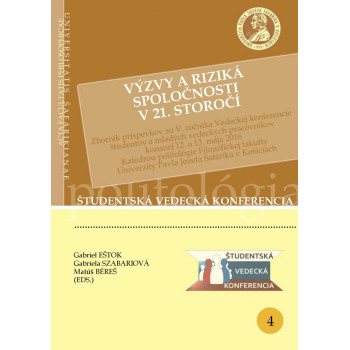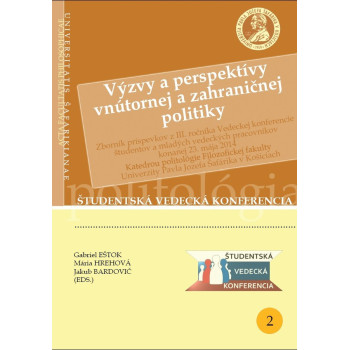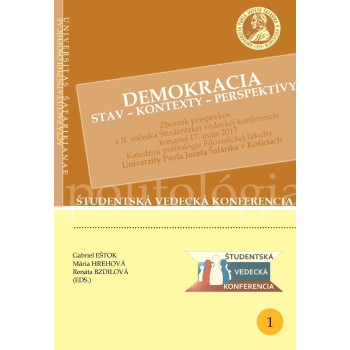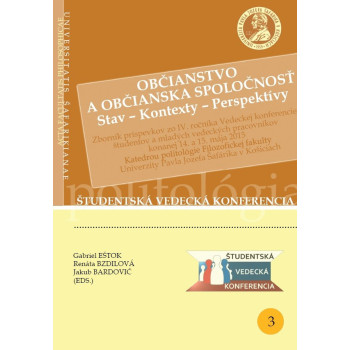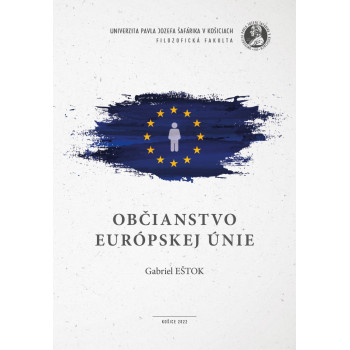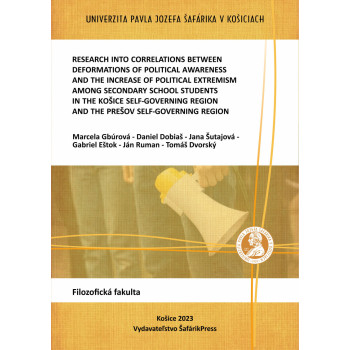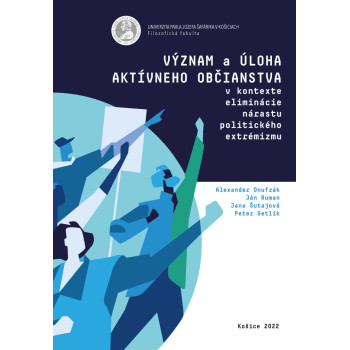Výzva a riziká spoločnosti v 21. storočí
E-book
Gabriel Eštok - Gabriela Szabariová - Matúš Béreš (eds.)
Presented publication is an outcome from the scientific conference for students and young scientists that took place on 12th and 13th May 2016 at the Department of Political science, Faculty of Arts, Pavol Jozef Šafárik University in Košice. The main aim of the presented is to bring up outcomes of research of young scientists and students from Slovakia, as well as from abroad. Many of the presented papers have become integral part of qualification theses of their authors.
This conference proceedings contains 22 papers in Slovak, Czech and English language thematically creating four different parts.
Papers regarding international relations or issues exceeding a level of state power are dealing with issues of globalization, counterculture, international terrorism, extremism and a role of the EU in the Arctic. Papers dealing with the situation in the Slovak republic and abroad cover reform of security in Slovakia and in Romania, issue of dealing with totalitarian history of the states of the Visegrad group as well as development of funding of education system in Slovakia since 1919. In case of authors focusing on the socio-political situation in Slovakia we can find papers analyzing role of a reeve in city of Košice, first great political conflict during a rule of Vladimír Mečiar in Slovakia, role of Roma population in political environment in Slovakia, but also those concerning local activist or action groups and examining attitude of nursing care students towards euthanasia. The conference proceedings contents also four papers regarding theoretical or philosophical issues.
Their authors focused on topic of social state, social equality, democratic theories and transformation of human nature in “post-human” era.


